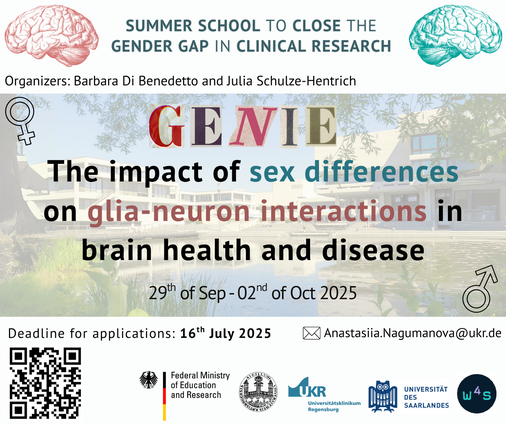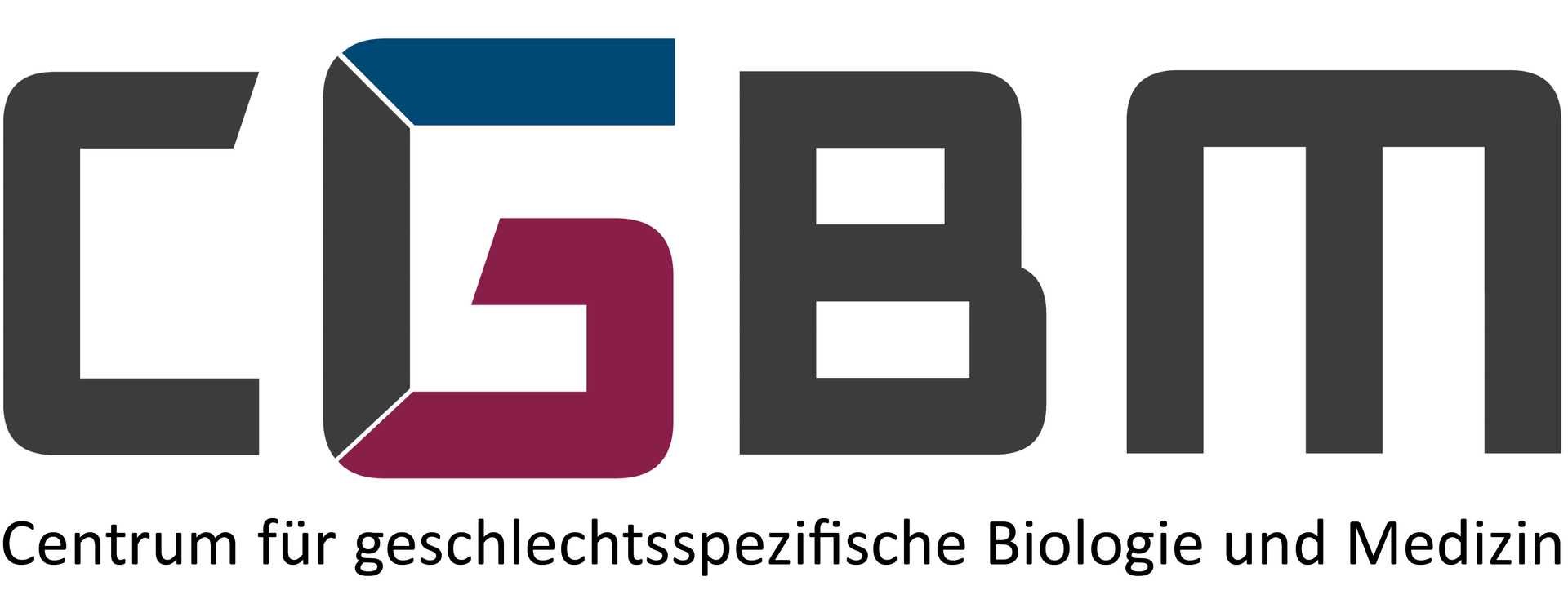
Our research focuses on the analysis of gene expression and epigenetic modifications in health and disease.
Particular interest is geared towards a better understanding of:
- the interplay between genetic predisposition and environmental influences in the pathogenesis of neurodegenerative diseases
- epigenetic modifications in ageing
- the potential of epigenetic signatures in diagnosing rare diseases and syndromes
News

GENIE Summer School: The impact of sex differences on glia-neuron interactions in brain health and disease
The GENIE Summer School offers an intensive, 4-day academic experience for advanced undergraduate students in Biology, Medicine, Psychology and related fields, who are interested in the role of sex differences in glia-neuron interactions in the context of central nervous system health and disease. The school combines scientific lectures, methodological sessions, and hands-on workshops in small-group settings. A total of 20 students will be selected to participate. Sessions will be held in English. The school is organized by Prof. Barbara Di Benedetto (University Hospital Regensburg) and Prof. Julia Schulze-Hentrich (University of Saarland).
Please find more information on the Summer School and applications here.
New Priority Program: “SEXandGLIA: Sex-dependent mechanisms of neuroglial cell function in the context of health and disease”
The German Research Foundation (DFG) is establishing eight new Priority Programs (SPP), which are due to start in 2026. The eight new collaborations, which were selected from 53 submitted initiatives, will initially receive a total of around 55 million euros for three years. In addition, there will be a program allowance of 22 percent for indirect project expenses.
Prof. Schulze-Hentrich's research group will lead one of the new SPP consortia, which will investigate gender-dependent mechanisms of cell functions in the nervous system over a period of 6 years.
Further information can be found on the UdS news page and the SPP2561 web site.

Center for Gender-specific Biology and Medicine (CGBM)
Project: Integrative analysis of gender-specific epigenetic alterations in Parkinson´s disease
It becomes more and more evident that biological sex influences Parkinson's symptoms. While the risk of developing Parkinson's disease is twice as high in men as in women, women have a higher mortality rate and a faster progression of the disease. As the molecular mechanisms underlying these differences are still largely unclear, a better understanding is needed to potentially open up new avenues for pharmacological intervention. Here, the epigenome is of particular interest, as sexually dimorphic changes are in part a consequence of underlying differences in gene regulation and epigenetic control. To better understand this regulation, our group became part of the Center for Gender-specific Biology and Medicine (CGBM) and will perfom an integrated analysis of disease-related sex differences in epigenome and transcriptome data from the brain and blood of Parkinson's patients compared to healthy controls. The focus is on changes in only one sex (sex-specific) as well as on changes in both sexes in the opposite direction (sex-dimorphic changes). Further integrated pathway and network analyses will be used to identify coordinated sex-dependent changes. Please find further information here.

Prof. Dr. Julia Schulze-Hentrich appointed INM Fellow
On January 1, 2025, the INM appointed Prof. Dr. Julia Schulze-Hentrich, Professor of Genetics at Saarland University, as an “INM Fellow”. This will intensify scientific collaboration and the acquisition of expertise that promotes joint research. The fellowship will investigate the interaction of cells with (therapeutic) materials at the genetic and epigenetic level. Cooperation partners at the INM are the research departments Dynamic Biomaterials, Materials-oriented Synthetic Biology and the research groups Bioprogrammable Materials and Immuno-Materials.
More information on the joint research and the INM Fellow appointment can be found here and here.
-
-
more Team
Team
-
more Research
Research
-
more Publications
Publications
-
more Software
Software
-
more Teaching
Teaching
-
more Epigenomics Sequencing Facility
Epigenomics Sequencing Facility
-
more Contact us
Contact us
-
